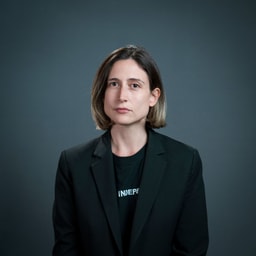Ukraine Business Roundup — Historic tax increase signed 44 days late

The following is the Dec. 3, 2024 edition of our Ukraine Business Roundup weekly newsletter. To get the biggest news in business and tech from Ukraine directly in your inbox, subscribe here.
President Volodymyr Zelensky finally signed into law a bill authorizing Ukraine’s first wartime tax increase on Nov. 28, following more than a month of delay.
What’s changing? The government is raising the war tax on personal income from 1.5% to 5% and introducing a war tax on small businesses and individual entrepreneurs, or FOPs as they’re known here in Ukraine.
It’s also planning to tax bank profits at 50% and raise taxes on other financial institutions to 25%, among other hikes. The changes will come into effect starting Dec. 1.
The tax increases will help raise additional funds for December 2024 and should provide around Hr 141 billion ($3.4 billion) in additional revenues in 2025, which will be crucial for Ukraine’s defense against Russia.
The hike was also a demand of the International Monetary Fund as part of its $15 billion loan program to Ukraine.
Why the hold-up? It’s not exactly clear why the president took 44 days to put pen to paper after the parliament passed the law on Oct. 10.
Questions also remain as to why, if there was no rush, proposed changes to the draft law weren't made – as well as to why the president took so much time to sign the version of the law that he himself backed.
In response to the above questions, opposition lawmaker Yaroslav Zhelezniak had this to say: “The answer is I don't know. Nobody knows. Simple and without logic.”
One explanation as to why Zelensky took so long — he simply didn’t want to do something unpopular. The business community was particularly irate about the tax increase, which felt it disproportionately targeted taxpayers instead of shadow markets.
"People often procrastinate when they have to do something they don't want to do. The president is also human," one unnamed source in the government told Ekonomichna Pravda.
According to the media outlet’s sources, Zelensky felt the government didn’t do a sufficient job of communicating why Ukraine’s war effort and economic needs required increasing taxes.
Whatever the reason, one thing is clear: Delaying signing the law cost the budget — and the country’s defense — Hr 270 million ($6.4 million) a day, or Hr 12 billion ($287 million) for the entire 44 days, according to Zhelezniak. With only the month of December, the new law will only bring Hr 8 billion ($191 million) to the budget this year.

Gazprom planning for end of transit
Gazprom, Russia’s state-controlled gas company, is planning for a scenario in which no natural gas will flow to Europe through Ukraine after Dec. 31, a source familiar with the plans told Reuters.
Kyiv has indicated it will not extend the transit deal, ending over 50 years of gas flows from Siberia to central Europe — a vital revenue stream for Russia since the Soviet era.
Gazprom’s internal planning assumes no Ukrainian transit next year, the source said, adding that the company expects Russian gas exports to Europe and Turkey — termed "far abroad" — to decline by 20% in 2025.
Due to the loss of the Ukrainian route, exports are projected to drop to just under 39 billion cubic meters (bcm) from the more than 49 bcm expected this year.
Meanwhile, talks between European energy companies, Ukraine, and Azerbaijan have reportedly been ongoing to replace the flow of gas through Ukraine’s pipelines with Azeri gas after Dec. 31.
In an interview with the Financial Times, outgoing EU energy commissioner Kadri Simson warned against the deal, saying that the “swap” would end in Russian flows continuing but as “pre-labeled” Azeri gas.

Naftogaz chief shuffled
Ukraine's parliament on Dec. 3 voted to support the candidacy of state-owned oil and gas giant Naftogaz CEO Oleksii Chernyshov to serve as "minister for national unity.”
The new minister's powers remain unclear. President Volodymyr Zelensky recently presented the department as part of Ukraine's “resilience plan,” saying it would focus on strengthening relations with Ukrainians living abroad.
Later in the day, the government renamed the Ministry for Reintegration of Temporarily Occupied Territories to the Ministry of National Unity of Ukraine."This institutional strengthening will help to create a new quality of work and interaction with the multimillion Ukrainian community from all waves of migration," Prime Minister Denys Shmyhal said.
Even before the full-scale invasion, there were millions of Ukrainians living around the world in various diaspora communities. The war has pushed millions more from their homes, with an estimated 6.7 million living abroad as of August 2024.
Chernyshov has been the CEO of the Naftogaz Group since 2022. Before that, he served as Kyiv Oblast governor. His replacement as Naftogaz chief is yet to be announced.

S.T.A.L.K.E.R. 2
The long-awaited release of “S.T.A.L.K.E.R. 2: Heart of Chornobyl” has been one of the biggest gaming events of the year — and Ukrainian soldiers all along the front lines have joined in the frenzy as well.
The game, developed by the Ukrainian company GSC Game World, quickly shot up to the top spot of global video game sales, with players of the post-apocalyptic first-person shooter game roaming a fictionalized Chornobyl exclusion zone with a weapon in their hand.
The excitement has been palpable in Ukraine, where the game’s release was marked by congratulatory remarks in parliament, viral cross-promotion campaigns, and memes implying that the U.S. embassy’s closure that day due to a security threat was really so its employees could download “S.T.A.L.K.E.R. 2.”
Our reporter Andrea Januta spoke to several soldiers who have been playing the game since its release.
“In these games, I do everything the same as in life, but without the fear of dying. It helps me accept traumatic experiences and realize that this is the past, and it needs to be let go,” one soldier told Januta.
Read the full article here.
What else is happening
Over 2 million applications received on first day of new 'eSupport' financial aid program for citizens, Zelensky says
Ukraine’s new “eSupport program” that will dole out Hr 1,000 ($24) to every Ukrainian citizen through online registration received over 2.1 million applications on its first day of operation, including nearly half a million for children, President Volodymyr Zelensky announced on Dec. 1. The cash can be used for utilities, medicine, books, transportation, and education, or donated to support the Ukrainian Armed Forces through volunteer funds. The populist move by Zelensky has received criticism at a time when the country is struggling to fund its defense. More on that here.
War has caused significant damage to most of Ukraine's civilian airports, PM Shmyhal says
At least 15 of Ukraine's 20 civilian airports have sustained damage since Russia's full-scale invasion began in 2022, Prime Minister Denys Shmyhal said on Nov. 30. The statement comes as Ukraine is reportedly looking to open either the western Lviv or Kyiv airport in early 2025, but according to Shmyhal, “security issues and the military situation remain key to this decision.” Shmyhal added that the country has “conducted a risk assessment and determined the needs of the air defense forces to partially open the airspace.”
Ukraine receives $100 million loan for budget expenses from South Korea
Ukraine received $100 million as part of a loan from South Korea for budget assistance, the first time the country is providing aid to Ukraine's state budget, Prime Minister Denys Shmyhal said on Nov. 29. According to Shmyhal, the funds will be devoted to Ukraine's social sector by supporting budget expenses. In April of this year, Kyiv and Seoul signed an agreement enabling Ukraine to attract up to $2.1 billion in concessional loans over 2024-2029. The loan has a term of 20 years with an annual interest rate of 1% and a five-year grace period.
Ukraine receives $4.8 billion from World Bank
Ukraine has received a $4.8 billion loan from the World Bank through the PEACE project for social expenditures, Prime Minister Denys Shmyhal said on Nov. 27. "We are very grateful to the United States and the development partners who are financing assistance under the PEACE project," Shmyhal said on X. The Public Expenditures for Administrative Capacity Endurance Project (PEACE) helps to provide funding for pensions, support for internally displaced persons (IDP), and salaries for teachers, first responders, and other state employees.
IT services exports from Ukraine decrease by 5%
In the first nine months of 2024, IT exports out of Ukraine dropped 4.9% compared to the same period in 2023, according to Central Bank data released last week. Before the full-scale invasion, the IT industry had one of the largest shares of Ukrainian exports. Now, bans on working with Ukraine, as well as Russia and Belarus, to reduce risks brought on by the war and sanctions, travel bans on male Ukrainian IT workers that don’t give them face time with clients abroad, and the threat that Ukrainian workers could be mobilized, are all contributing to a decrease. It’s not all Ukraine-related — economic uncertainty, geopolitical tensions, and changes in the global IT industry are also to blame.








